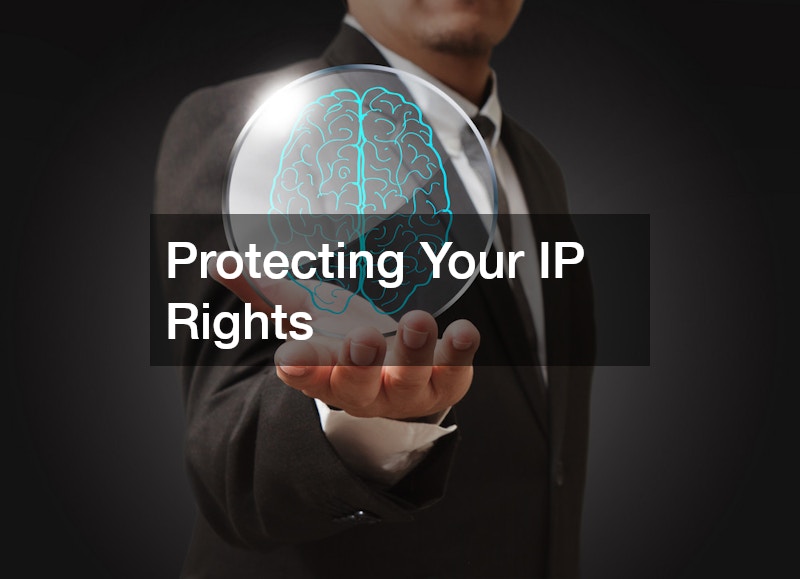The legal system can feel complex and overwhelming, especially for those who are not familiar with its inner workings. However, understanding the basics of legal processes is essential for navigating many situations in life. Whether you are dealing with a personal injury, family matters, or criminal charges, having foundational knowledge can make a significant difference in how you approach and resolve issues. This article explores ten critical aspects of the legal system that everyone should be aware of. From protecting yourself with restraining orders to understanding the nuances of intellectual property law, this guide provides a broad overview and specific details to help demystify the legal landscape. By delving into these processes, you’ll gain clarity on how to make informed decisions and where to seek professional assistance when needed.
How Restraining Orders Work
Restraining orders are legal tools designed to protect individuals from harassment, abuse, or threats. These orders are typically issued by courts to keep one party from contacting or approaching another. They can be vital in cases of domestic violence, stalking, or workplace harassment. While restraining orders are often viewed as a preventative measure, they also serve to set legal consequences for violators, reinforcing the safety and autonomy of the protected party. Knowing how these orders work is a fundamental part of understanding personal rights and protections.
When seeking a restraining order, the process usually involves filing a petition with a local court and attending a hearing where both parties can present their case. Depending on the jurisdiction, restraining orders can have varying durations and stipulations. For example, some orders may require the respondent to stay a certain distance away from the petitioner, while others might restrict communication entirely. Violating a restraining order can lead to severe penalties, including fines and jail time. These orders not only offer immediate safety but also create a legal record of misconduct.
Ultimately, restraining orders play a crucial role in safeguarding individuals and their families. They provide a legal framework for addressing threatening situations while ensuring the rights of all parties are respected. Understanding this process is integral to criminal justice 101, as it empowers people to act when their safety is compromised. By knowing your rights and the legal steps available, you can take proactive measures to protect yourself and others from harm.
After an Accident: Next Steps

Accidents can disrupt lives in an instant, leaving victims to deal with physical injuries, emotional trauma, and financial burdens. Navigating the aftermath of an accident can be overwhelming, especially when legal matters come into play. This is where understanding the next steps becomes crucial. Knowing your rights and the resources available to you is an essential part of criminal justice 101, ensuring that you can seek justice and compensation for damages sustained.
After an accident, one of the first steps is to seek medical attention and document the injuries. Legal action often requires solid evidence, so gathering photographs, witness statements, and police reports is critical. Consulting with an accident injury attorney can be invaluable during this time, as they can help assess the situation, guide you through filing claims, and negotiate with insurance companies on your behalf. Many attorneys operate on a contingency basis, meaning they are only paid if you receive compensation, making legal support more accessible.
Understanding how to handle the aftermath of an accident is vital for protecting your rights and recovering from the incident. With the guidance of a skilled accident injury attorney and a clear understanding of the legal process, victims can focus on healing while ensuring that justice is served. Criminal justice 101 emphasizes the importance of being prepared and proactive in addressing the challenges that arise after an accident.
Divorce: What to Expect
Divorce is a significant life event that brings emotional and legal challenges. Understanding the process and what to expect can help individuals navigate this difficult time with greater confidence. Divorce proceedings vary depending on the circumstances, such as whether the divorce is contested or uncontested. Having the right divorce advice and knowledge of criminal justice can make the journey less daunting and more manageable.
When filing for divorce, it is essential to address key issues such as property division, child custody, and spousal support. Mediation or court proceedings may be required to reach agreements, and legal representation can be crucial in advocating for your rights and interests. Divorce advice often centers around understanding state laws, gathering necessary documentation, and maintaining open communication when possible to minimize conflict. Each case is unique, and the right approach depends on individual factors.
Divorce is a challenging but navigable process with the right support and preparation. By seeking reliable divorce advice and familiarizing yourself with legal procedures, you can approach this life change with clarity and resilience. Criminal justice 101 highlights the importance of understanding legal frameworks in personal matters to ensure fair outcomes for all parties involved.
Bankruptcy: Starting Fresh

Financial struggles can happen to anyone, and bankruptcy offers a legal pathway to regain stability. Filing for bankruptcy can provide relief from overwhelming debt and a fresh start for individuals and businesses. While the process can feel intimidating, understanding its benefits and requirements is an important component of criminal justice.
The bankruptcy process typically begins with determining which type of bankruptcy to file—Chapter 7 or Chapter 13 being the most common for individuals. Chapter 7 involves liquidating non-exempt assets to pay creditors, while Chapter 13 allows for a repayment plan over several years. Consulting with a bankruptcy attorney is essential, as they can guide you through the complexities of the process, including submitting accurate paperwork and representing you in court hearings. An attorney can also help determine the best course of action based on your unique financial situation.
Bankruptcy is a legal tool designed to provide relief and a path to financial recovery. By seeking professional guidance from a bankruptcy attorney and understanding your options, you can move forward with confidence. Criminal justice 101 underscores the importance of utilizing legal avenues to address life’s challenges and build a more stable future.
Defending Criminal Charges
Facing criminal charges can be one of the most stressful experiences in life. Understanding your rights and the legal processes involved is essential for building a strong defense. This is a critical aspect of criminal justice, as it ensures individuals are treated fairly and lawfully throughout the justice system.
The role of a criminal attorney is pivotal in defending against charges. From evaluating evidence to representing clients in court, an experienced attorney can make all the difference. They help navigate plea deals, cross-examine witnesses, and challenge evidence that may be inadmissible. Having a knowledgeable advocate ensures that your side of the story is heard and your rights are protected.
Defending against criminal charges requires a clear understanding of the legal system and a strong defense strategy. With the support of a skilled criminal attorney, individuals can fight for justice and protect their future. Criminal justice 101 emphasizes the importance of legal representation in ensuring fairness and accountability within the justice system.
Evictions and Your Rights

Evictions can be a challenging and emotional experience for both tenants and landlords. Understanding the legal rights and responsibilities associated with evictions is crucial for navigating this process effectively. Criminal justice 101 highlights the importance of knowing your rights to ensure fair treatment and compliance with local housing laws.
For tenants, the eviction process usually begins with a notice from the landlord, which can vary based on the reason for eviction. Common grounds include nonpayment of rent or lease violations. Consulting an eviction attorney can help tenants understand their rights and determine whether the eviction is lawful. Attorneys can also assist in negotiating with landlords or representing tenants in court. Similarly, landlords benefit from legal guidance to ensure they follow proper procedures and avoid disputes.
Eviction laws are in place to protect both tenants and landlords, providing a framework for resolving conflicts. By working with an eviction attorney and understanding local regulations, individuals can address eviction-related issues effectively. Criminal justice 101 underscores the importance of legal knowledge in maintaining fairness and accountability in housing matters.
Handling Estates Legally
Managing an estate after the passing of a loved one can be a complex and sensitive task. Estate planning and administration involve legal processes that ensure assets are distributed according to the deceased’s wishes. Criminal justice 101 includes understanding these processes to help individuals navigate this challenging time with clarity and confidence.
An estate attorney service can provide invaluable assistance in handling wills, probate, and trusts. These professionals guide executors through legal requirements, such as filing necessary documents and settling debts. They also help mediate disputes among heirs and ensure the estate is administered in compliance with the law. Proper estate planning, including drafting a will and establishing trusts, can prevent complications and reduce stress for surviving family members.
Handling an estate legally requires careful attention to detail and adherence to legal protocols. With the support of an estate attorney service, individuals can manage these responsibilities more effectively. Criminal justice 101 emphasizes the importance of legal expertise in ensuring a smooth and fair estate administration process.
Protecting Your IP Rights

Intellectual property (IP) law is designed to protect creators’ rights over their inventions, artistic works, and brands. Understanding the basics of intellectual property law is an essential part of criminal justice, as it empowers individuals and businesses to safeguard their innovations and ideas.
There are several types of intellectual property protection, including copyrights, trademarks, and patents. Each serves a unique purpose, from securing exclusive rights to creative works to protecting distinctive brand elements. Navigating intellectual property law can be complex, requiring individuals to register their creations and, in some cases, enforce their rights through litigation. Legal professionals specializing in this area can help clients understand the nuances and defend against infringement.
Intellectual property law plays a crucial role in fostering innovation and protecting creators’ rights. By understanding these legal protections and seeking professional guidance when needed, individuals and businesses can ensure their ideas remain secure. Criminal justice 101 highlights the importance of intellectual property law in promoting fairness and innovation in a competitive world.
Understanding Bail Bonds
When someone is arrested, bail bonds offer a way for them to be released from custody while awaiting trial. This process is an integral part of the criminal justice system and a key topic in criminal justice 101. Bail bonds ensure that defendants can continue their lives while also guaranteeing their appearance in court.
A bail bond involves a financial agreement between the defendant, a bail bondsman, and the court. The bondsman pays the bail amount set by the court in exchange for a fee, usually a percentage of the total bail. If the defendant fails to appear in court, the bondsman may be responsible for the full amount. This process provides a balance between the rights of the accused and the interests of public safety.
Bail bonds are a critical component of the legal system, offering temporary freedom while ensuring accountability. By understanding how this process works, individuals can better navigate the criminal justice system. Criminal justice 101 emphasizes the importance of bail bonds in maintaining fairness and efficiency within the judicial process.
Choosing the Right Lawyer
Selecting the right attorney is one of the most important decisions you can make when facing legal challenges. An attorney’s expertise, experience, and communication skills can significantly impact the outcome of your case. Criminal justice 101 highlights the importance of finding a lawyer who understands your needs and has the knowledge to guide you through the legal process.
When choosing an attorney, consider their specialization, track record, and approach to client communication. Whether you need assistance with family law, criminal defense, or intellectual property issues, selecting someone with relevant experience is crucial. Initial consultations can help you assess whether an attorney is the right fit for your case and ensure that you feel confident in their ability to represent your interests.
Finding the right attorney requires careful research and consideration. By prioritizing expertise and clear communication, you can ensure effective representation in legal matters. Criminal justice 101 underscores the value of professional guidance in achieving favorable outcomes and navigating complex legal systems.
Navigating the legal system can be challenging, but understanding key processes empowers individuals to make informed decisions and protect their rights. From obtaining restraining orders to handling estates and defending against criminal charges, each aspect of the legal system plays a vital role in maintaining fairness and justice.
